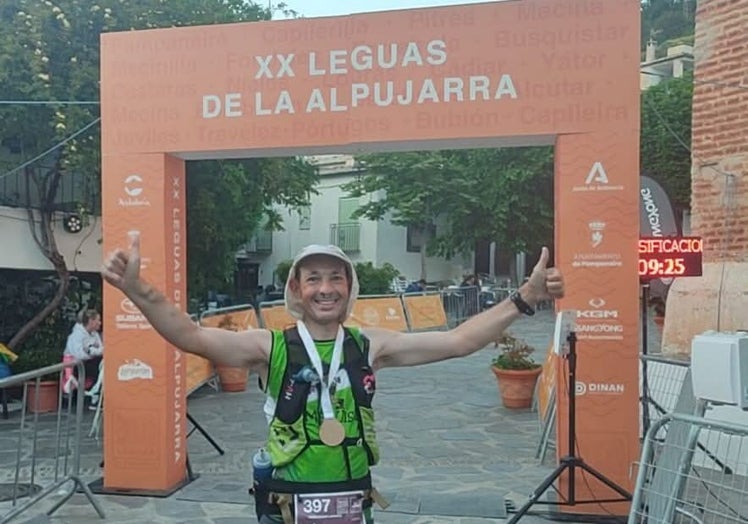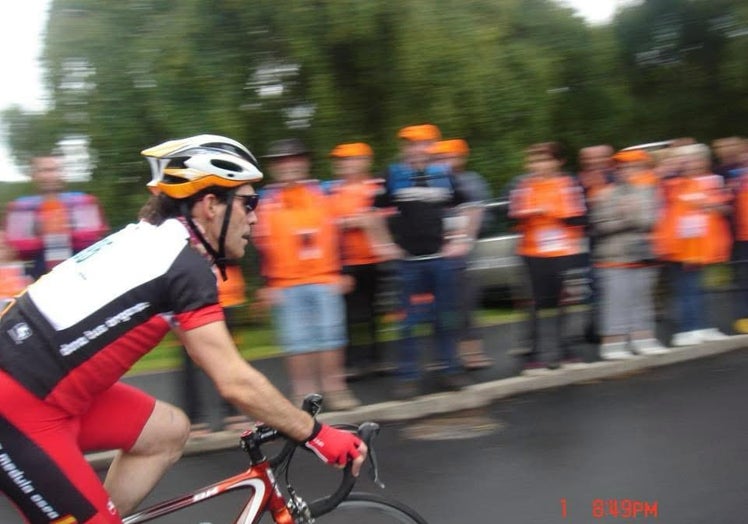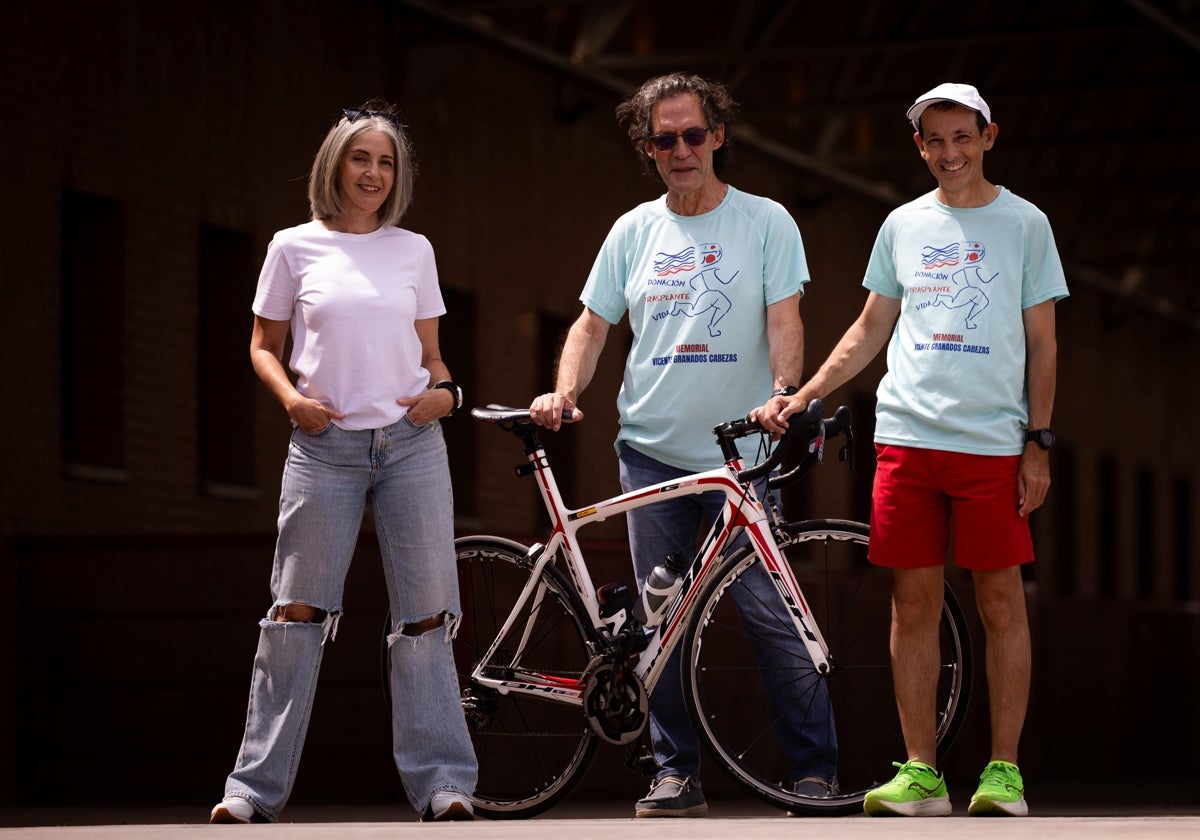Life after a transplant in Malaga: three recipients reveal how competitive sport helps
Manuela, David and José, respective recipients of heart, liver and kidney transplants, tell how physical activity helps them enjoy each day to the full, prolonging the life of their 'new' organs and mitigating the powerful side effects of their required medication
Manuela La Haba, 51, David Laguna, 44, and José López, 64, are people who, apparently, have nothing in common. Still, under the scorching sun on Tuesday 3 June when SUR invited them to speak at the University of Malaga's sports centre, their respective figures loom large, not only because they are award-winning athletes who have tasted glory on several occasions, but also because this trio of friends and committed individuals have each received a transplant at some point in their lives. From the uncertainty surrounding the entire transplant process, they went on to feel hope and to enjoy the second half with extra time, but without penalties: a new life.
In the same week that Spain commemorated National Organ Donor Day (the first Wednesday of June, 4 June this year) and Transplant Patient Day (6 June), Manuela, David and José stress the importance of never losing hope, nor patience. "I've had a heart transplanted in me for seven years. When I was a child I had Ewing's sarcoma, which I overcame. Then, when I was 11 years old, because of the chemo, I suffered multiple organ failure, from which they also thought I would recover. I overcame it and I was left with dilated cardiomyopathy for life. I was living a more or less normal life, always on medication, until at the age of 42 my heart said it couldn't take it anymore", says Manuela La Haba, who now chairs the Spanish association for sport, transplant and life. Then they sent her to Seville and, after a few months, "my new heart arrived and, with it, my new life", she says.
Now, she enjoys every moment and, above all, her son and her family. "After a transplant, life looks so different that you grab hold of every little thing you didn't give a thought to before," she explains. First she went bounced between sofa and bed, then she started walking regularly and, finally, amateur sports became a part of her life: "I started hiking little by little. I'm passionate about cycling and I go through those mountains enjoying every detail. I love mountain biking and hiking whenever I can". She also organises the popular, annual race in May in memory of the politician, economist and university professor, Vicente Granados.
Exercise and sport are vital for transplant recipients. "It gives me peace and a feeling that may seem silly: I just wanted to climb mountains to be closer to my donor and thank them. It gives me peace," she says, pointing out that physical activity helps transplant recipients feel more alive, as well as helping to prolong the life of the new organ and mitigate the effects of the powerful medication taken by transplant recipients. La Haba advises anyone waiting for an organ to "be patient, because it will come eventually."
David Laguna's ureters became paralysed when he was just a few months old. "They put two bags in me to urinate. By the time I was eight years old, I had already undergone 20 operations and that's when I lost my first kidney. I kept the next one until I was 22, when I went on dialysis and, by 24, I had already received the transplant. That's when my life changed. I knew, after being ill for some 20 years or so, that it was a substantial change, but I never thought it would be such a big change."

David leads a normal life, has a partner and, after 18 years as a transplant recipient, they have had a daughter. "I do my sport. I started out in athletics: first, the goal was to run ten kilometres, then 21, then 42, then hitting the mountain trails. I love climbing the highest peaks where I think about my donor, and I've continued pushing myself, right up to the 101-kilometre race in Ronda. Every year there's a goal because, in the end, this makes you develop healthier habits", he says.
He has already participated in three of Spain's 'national transplant games': in the 5,000 metres, he achieved two first places and a second. In the 1,500 metres, he has been Spanish champion three times. To those awaiting a transplant he says that there will be moments of feeling low, but the main thing is "not to look at the clock" and to be patient. "Sport helps us control our cholesterol and blood sugar, things we find easier, and physical activity regulates them," he stresses. Next week he will attend his fourth national transplant games.
"A great inner peace"
José López Rivas is 64 years old and a teacher. In 2006, he had a liver transplant. He was an athlete and led a normal life when, suddenly, during a Unicaja football match, he realised that he was suffering from a violent itching. The doctor in Yunquera, his home town, prescribed him some pills and sent him to a specialist. He was eventually diagnosed at El Clínico (Malaga's teaching hospital) as having three tumours in his liver and one in his bile ducts. The only solution was a transplant. "I thought my life was over, but I entrusted myself to the public health system and to Dr Miguel Ángel Suárez," he says, his surgeon who specialises in the digestive system. "I entered a state of great inner peace, trying to determine if I had wronged anyone, trying to be a better person," he says.

"For me, being on a bike gave me life before and it's saved me since. I really like endurance cycling, but now I am preparing for the transplant games, which are 30-kilometre road races and five or ten time trials." He has participated in five World Transplant Games and seven national ones, and has been Spanish cycling champion several times in his age group. To those who are waiting for an organ, he tells them to live a peaceful life surrounded by their loved ones, and stresses that prescribing exercise after a transplant is absolutely necessary for them. "We take very aggressive drugs, immunosuppressants and corticosteroids. It's necessary to do some sport to combat the harmful side effects," he advises.



Comentar es una ventaja exclusiva para registrados
¿Ya eres registrado?
Inicia sesiónNecesitas ser suscriptor para poder votar.